Minsk’s muddled media clampdown could jeopardize warming of relations with the West.
Eastern Partnership Civil Society Forum trusted by EU and partner countries
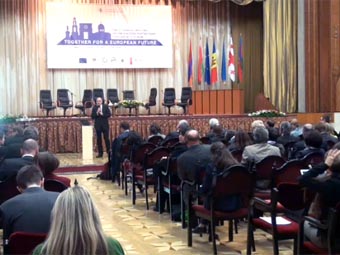
The Eastern Partnership Civil Society Forum (EaP CSF) is trusted by political leaders from the EaP countries and the EU, and will continue enjoying the support of the EU and its member states.
This was one of the key messages that came out of the fifth annual meeting of the Forum last week, held under the title Together for a European Future. The eventbrought together over 250 representatives of civil society organisations from partner countries and the EU, as well as senior government officials, diplomats and representatives of the donor community.
In his opening remarks, European Commissioner for Enlargement and Neighbourhood Policy Štefan Füle said the Eastern Partnership summit in November should be a summit of delivery. At the forum, the Commissioner was awarded a special certificate "in recognition of the support given to the civil society" in the Eastern Partnership countries, a press release from the CSF said.
Mikayel Hovhannisyan from the Eurasia Partnership Foundation in Armenia said civil society in his country stands for the highest possible level of integration with the EU.
Leila Alieva from the Centre for National and International Studies, Azerbaijan, pointed to a highly polarised society in her country and urged the EU “to strike a right balance between promoting values and pursuing its energy security policy.”
Andrej Yahorau, representing the Belarusan Centre for European Transformation, spoke in favour of promoting reforms in his country rather that “superficial monitoring” of the reforms.
A representative of the Georgian Foundation for Strategic and International Studies Kakha Gogolashvili said civil society should be operating in the space between the government and the public, working actively with both.
Others
-
In Belarus, a rising fear: Will we be the next Ukraine?
The relationship between Russia and Belarus has never been an easy one. The two former Soviet republics have spent the last two decades on a roller coaster ride — sometimes allies, sometimes adversaries in heated public rows.
-
The EU’s Benign Neglect of Eastern Europe
Between November 6 and December 11, 2015, Carnegie Europe continued its Capitals Series. In this second phase, the focus was on the EU’s Eastern neighbors, which the bloc has so often zigzagged over in trying to establish a coherent policy toward them collectively or bilaterally.
-
New ENP and Civil Society’s Role in Focus of the 7th EaP CSF Annual Assembly (Photo)
The 7th Annual Assembly of the Eastern Partnership Civil Society Forum was held in Kyiv on 19-21 November attracting around 300 participants, observers and guests who attended more than 20 sessions and a Networking Fair in the framework of the Assembly.
-
Is social economy a phenomenon for Belarus?
The conference “Social economy: how to be successful despite the crisis” launched in Minsk on October 22.

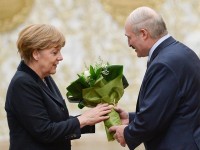
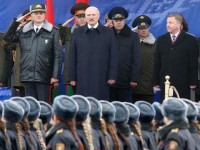
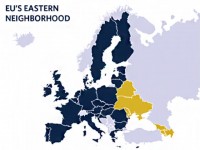
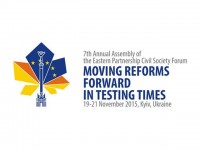
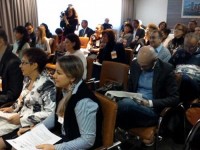


Comments
From farewell to a new Eastern policy and towards a new development
Poland and Germany were both initiators and drivers of a New Eastern policy linked to the Eastern neighborhood and Russia/Soviet Union.